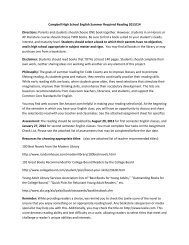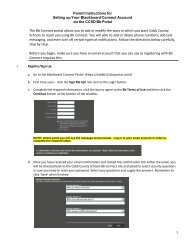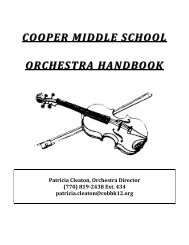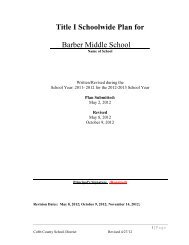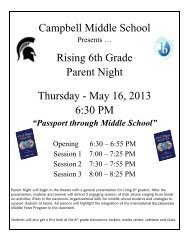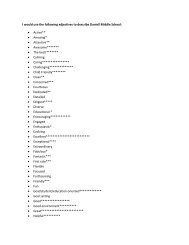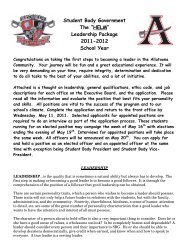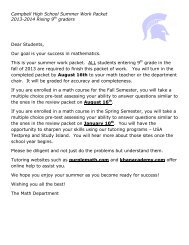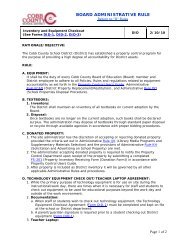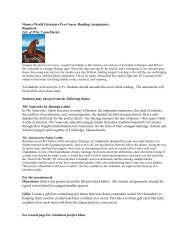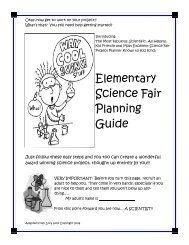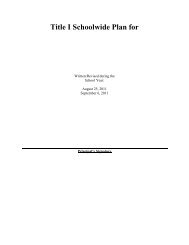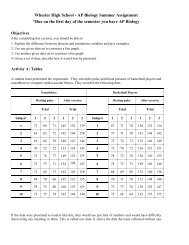Template Task Collection 1 - Literacy Design Collaborative
Template Task Collection 1 - Literacy Design Collaborative
Template Task Collection 1 - Literacy Design Collaborative
You also want an ePaper? Increase the reach of your titles
YUMPU automatically turns print PDFs into web optimized ePapers that Google loves.
Variation: <strong>Task</strong> 15 <strong>Template</strong>: After researching ________ (informational texts), write a ________ (report or substitute) in which you relate how________ (content). Support your discussion with evidence from your research. (Informational or Explanatory/Procedural-Sequential)Variation <strong>Task</strong> 15 Example: After researching lab safety articles, write a manual in which you relate how to safely conduct a flame test. Supportyour discussion with evidence from your research. (Informational or Explanatory/Procedural-Sequential)<strong>Task</strong> 16 <strong>Template</strong>: [Insert question] After reading ________ (literature or informational texts) on ________ (content), write a ________ (report orsubstitute) that relates how ________ (content). Support your discussion with evidence from the text(s). (Informational or Explanatory/Procedural-Sequential)<strong>Task</strong> 16 Social Studies Example: What is the process for passing a bill in the Congress? After reading political documents and articles on howCongress makes laws, write an article for the general public that relates how a bill is developed and the process it takes to get it to the floor of theCongress. Support your discussion with evidence from the texts. (Informational or Explanatory/Procedural-Sequential)<strong>Task</strong> 16 Science Example: Can the brain become smarter or is intelligence fixed? After reading articles on learning and the brain, write an articlefor your peers that relates how the brain develops over time from birth to twenty-five years. Support your discussion with evidence from the texts.(Informational or Explanatory/Procedural-Sequential)Variation <strong>Task</strong> 16 <strong>Template</strong>: [Insert question] After reading and analyzing ________ (literature or informational texts), write a ________ (report orsubstitute) in which you relate how ________ (content). Support your discussion with evidence from the text(s). (Informational orExplanatory/Procedural-Sequential)Variation <strong>Task</strong> 16 Example: What is the process for passing a bill in the Congress? After reading and analyzing political documents and articles onhow Congress makes laws, write an article for the general public in which you relate how a bill is developed and the process it takes to get it to thefloor of the Congress. Support your discussion with evidence from the texts. (Informational or Explanatory/Procedural-Sequential)<strong>Task</strong> 17 Science Example: After researching ________ (informational texts) on ________ (content), developing a hypothesis, and conducting anexperiment examining ________ (content), write a laboratory report that explains your procedures and results and confirms or rejects your hypothesis.What conclusion(s) can you draw? (Informational or Explanatory/Procedural-Sequential)<strong>Task</strong> 17 Science Example: After researching articles on wind power, developing a hypothesis, and conducting an experiment examining how windpower translates into useable energy, write a laboratory report that explains your procedures and results and confirms or rejects your hypothesis.What conclusion can you draw? (Informational or Explanatory/Procedural-Sequential)<strong>Template</strong> <strong>Task</strong> <strong>Collection</strong> 1 | © <strong>Literacy</strong> <strong>Design</strong> <strong>Collaborative</strong>, November 2011 23



